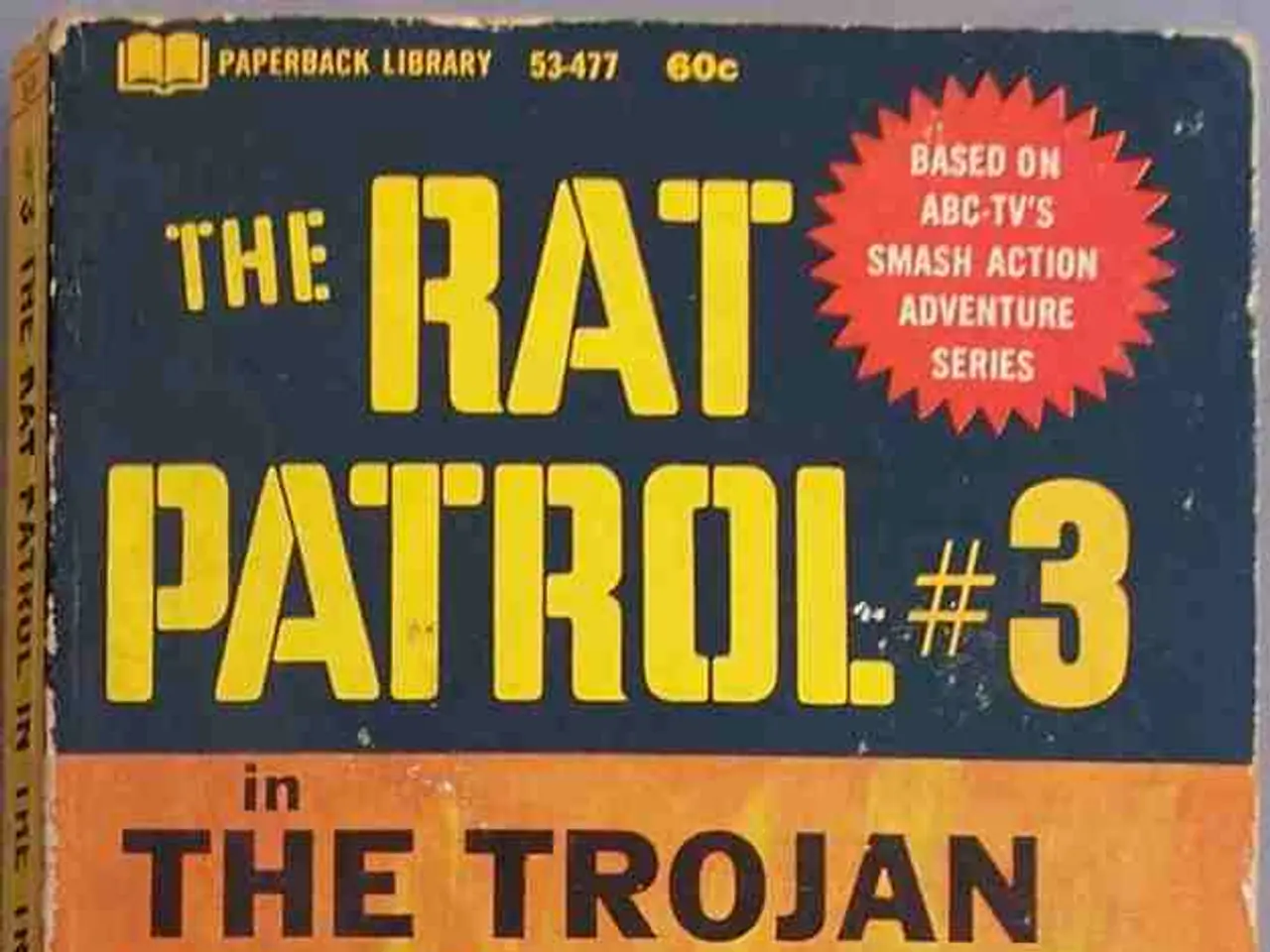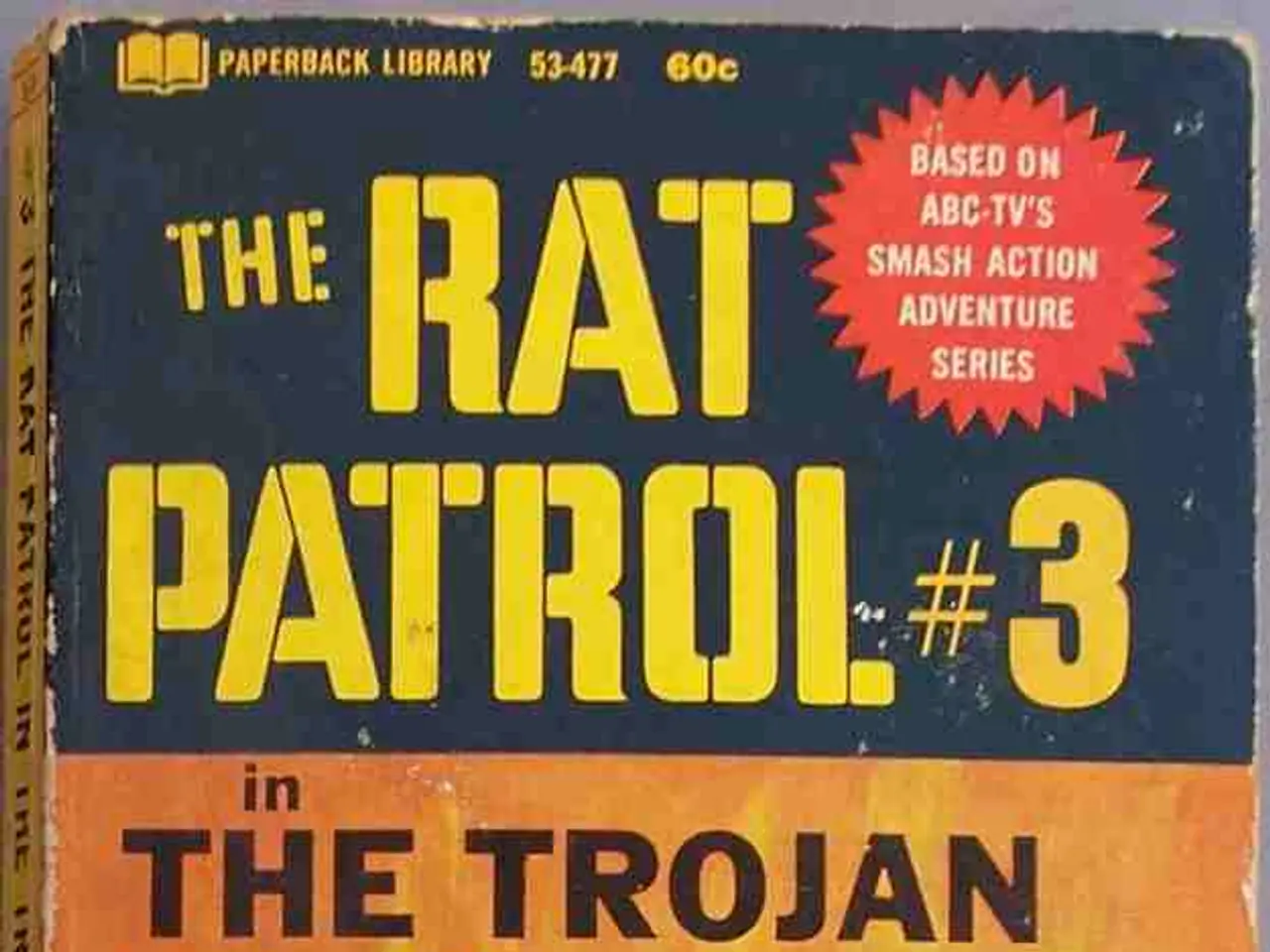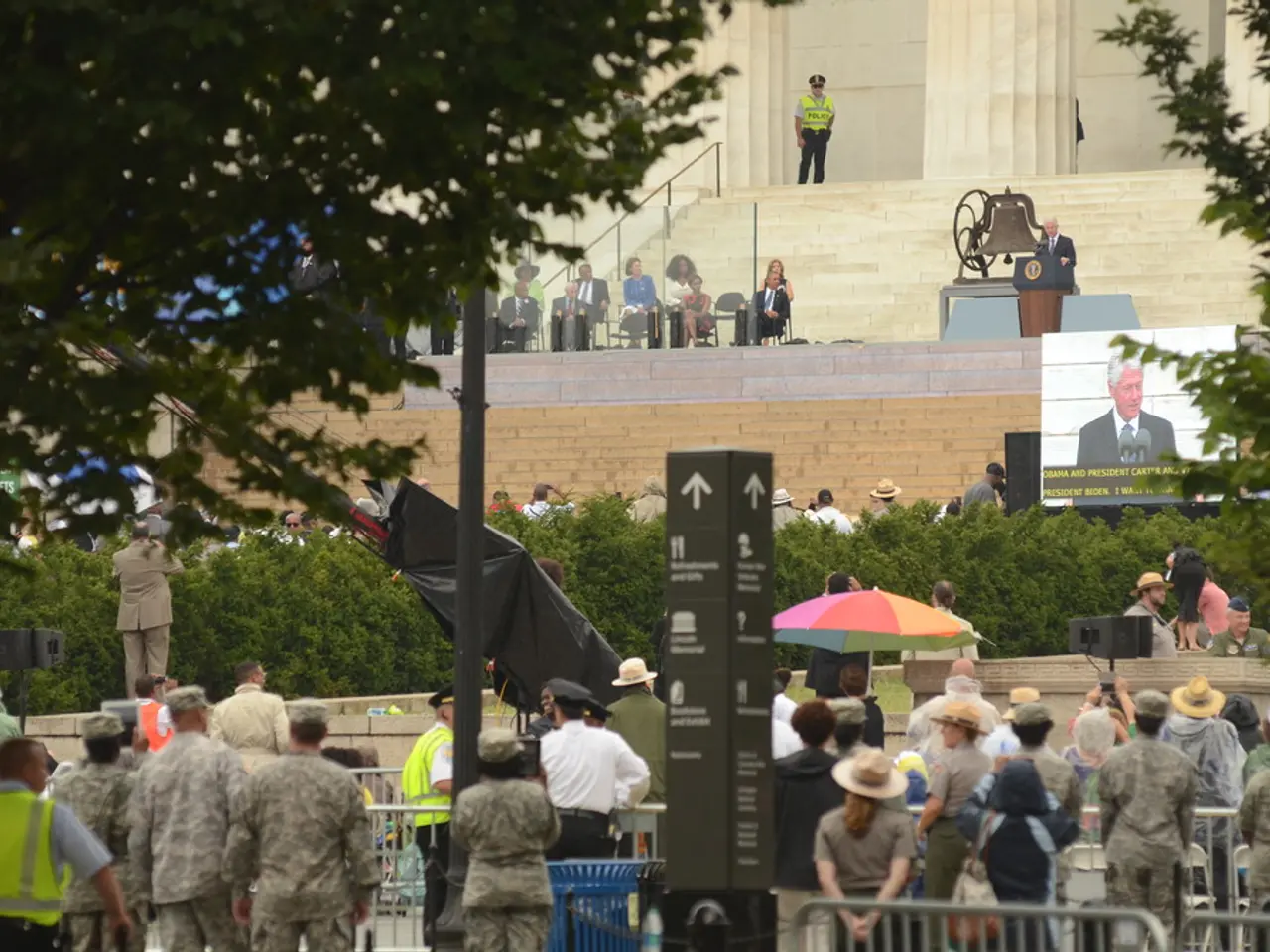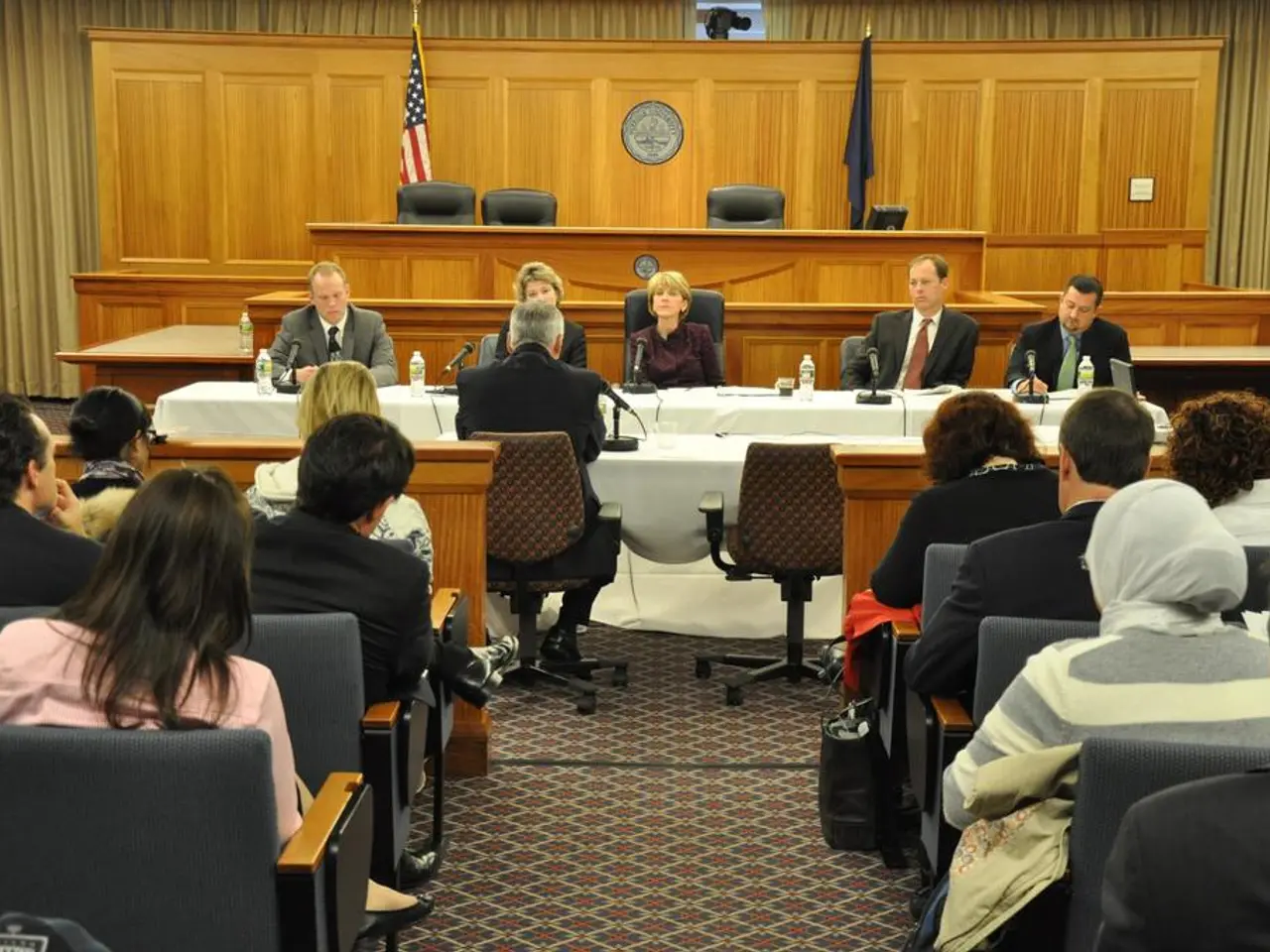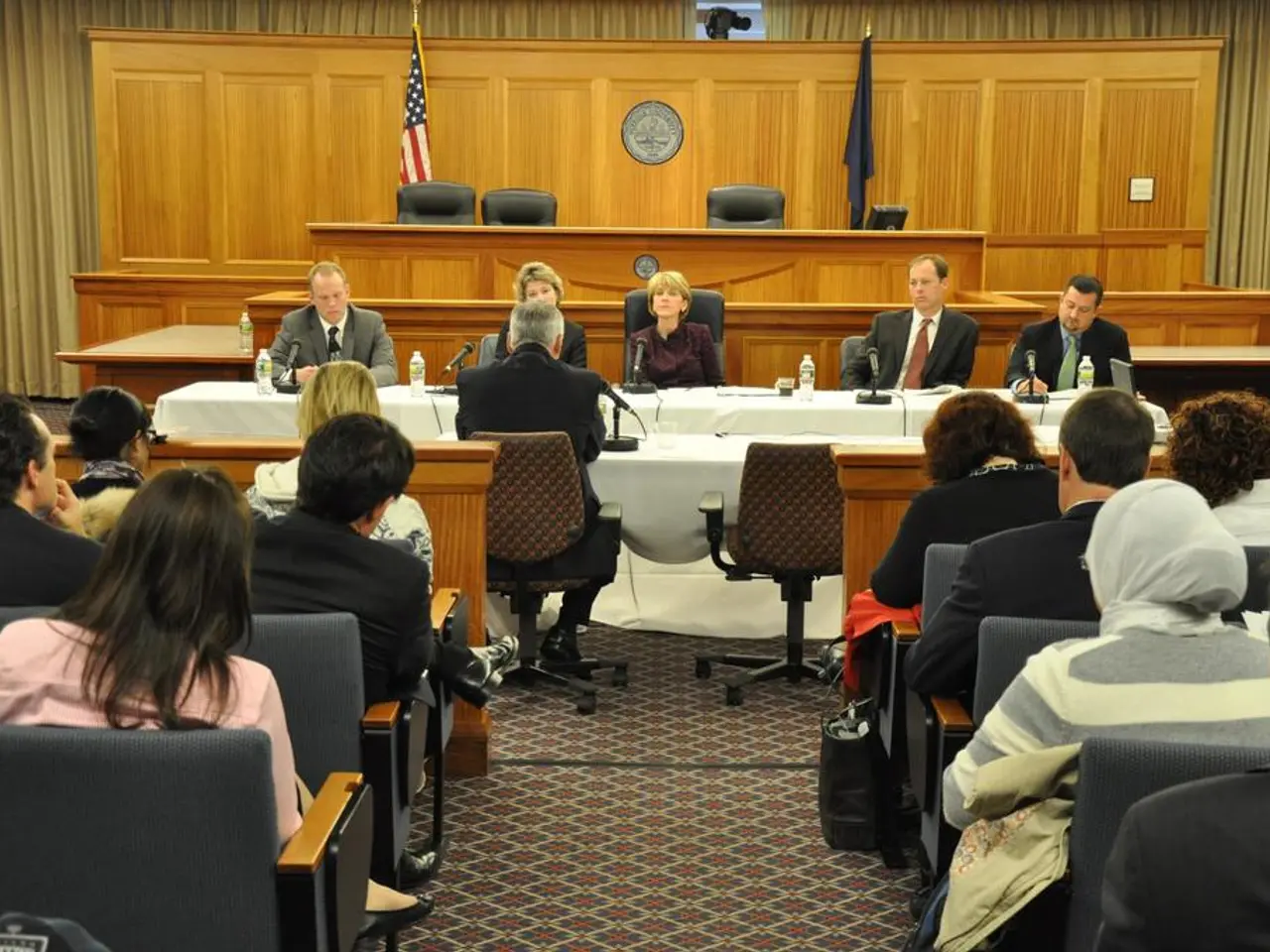Burnin' Money: Lanz Neitzel on Europe's Defense Hike and the NATO Summit
Wrestling may continue, leading to significant financial losses according to Neitzel's statement.
Join Markus Lanz as he delves into the aftermath of the NATO summit in The Hague with his insightful guests. The European NATO members have agreed to fork over a whopping five percent of their GDP for the defense alliance, much to the satisfaction of Trump.
Politics NATO's Final Fizz: Trump Plugs Iran Attacks to Sell Weapons
"That's right," military historian Sönke Neitzel assesses the meeting. "The NATO summit in The Hague was the low point of all NATO summits, in my opinion. But let's not forget, the Europeans are also paying a steep price for it. They've been talked to like a lazy horse to reach the 2% target. Now it's 5%, and we'll see how it's implemented." Neitzel echoes that the summit itself was a success, with the unpredictable Trump remaining semi-committed to Europe, a surprising turn given his personality and concerns.
The escalated defense contributions of European NATO states are a positive step, Neitzel believes. "I think it's necessary," he adds. "Now the question is, how will we execute it?" Neitzel has long advocated for defense reform in Germany. "It's crucial that we build capabilities to deter," he says, exasperated. "But that's not easy, and it drives me crazy, and even the soldiers are feeling it." Neitzel laments the price Europe has paid for too much talk in the past thirty years. "Since 2014, we've been hearing that the Europeans should do more. I can't hear it anymore." He raises concerns: "Will the Europeans finally get serious, can we take the next step of integration? That would be, for example, armaments cooperation, but we'd have to give up all our sovereignty. Can we do that, or are we just acting in our own self-interest?" Neitzel fears their lack of a coordinated plan in Berlin could lead to vast sums wasted. "We'll probably muddle through and burn a colossal amount of money," he warns.
Politics NATO: Merz, Germany Takes Charge
In response, Katharina Dröge, the Green party faction leader, replies: "It would be naive not to harbor concerns about war." The looming threat of conflict, particularly with Russia, raises crucial questions about preparedness, she notes. "I'm not saying war will occur, but we need to ensure it doesn't," Dröge stresses. "But if we take Russian President Putin seriously, given his declarations, he shows no signs of stopping at Ukraine." Dröge contends that supporting defense expenditures, even for conventional weapons, is necessary to maintain security, despite favoring investment in other areas.
Politics Lessons from the Summit: NATO Scents Trump's Majesty
Facing Dröge's concerns, Neitzel speaks up, confirming his readiness to serve in the event of a war. When asked if he, too, would be prepared to fight, Markus Lanz pauses and finally admits: "Yes, I've served." Lanz shared his experiences visiting Ukraine, pointing out the determination and strong motivation of the people there. He acknowledges that he's developed a new perspective on combat, which he'd previously deemed unimaginable. Neitzel then expounds on what a war might look like: "There won't be a nuclear apocalypse," he states. "Russia can't wage a long war against NATO as planned in the Warsaw Pact." Instead, smaller-scale conflicts, like sabotage or border incursions, might take place. Neitzel concludes that while the situation is serious, fear shouldn't overpower us. "We have the 3.5% target," he reiterates, "those were meaningful words."
Insights:
- The newly established 5% target requires European nations to allocate 3.5% of their GDP to core defense capabilities, with the remaining 1.5% going to broader security measures.
- There are concerns that without structural reforms in defense spending and procurement, the influx of funds might lead to increased costs without enhancing military capabilities significantly.
- The success of the 5% target will depend on addressing economic and structural challenges within NATO's defense spending frameworks.
- The implementation plan involves a gradual increase over a decade, but some member nations have shown hesitation in fully embracing the target.
(1) (2 + 3)
The Commission has also been asked to submit a proposal for a directive on the general-news politics of war-and-conflicts, given the increased defense contributions by European NATO states following the NATO summit. Neitzel, a military historian, suggests that while the implementation of the 5% defense target is crucial, it's equally important to ensure that the funds are used effectively to enhance military capabilities and not just burned in this process.
